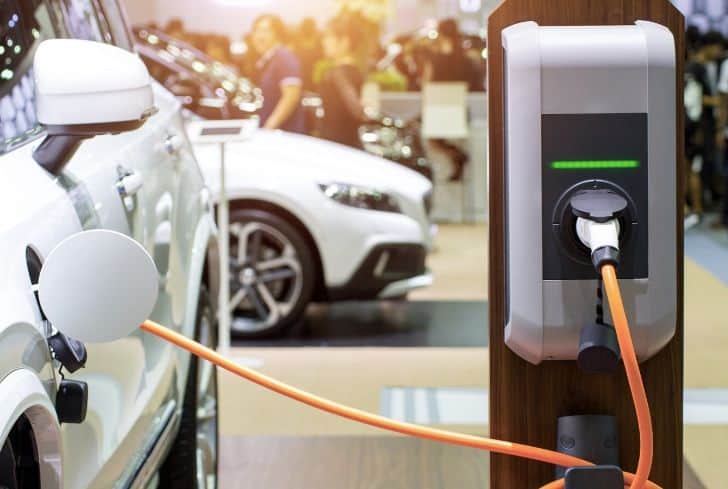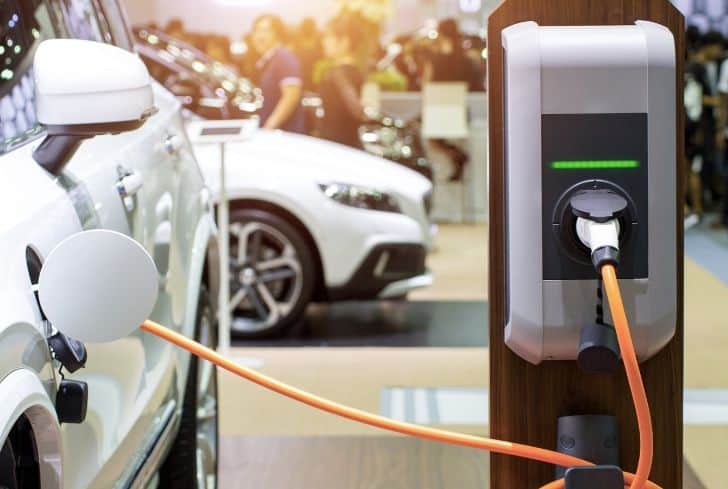The investment made by Electric vehicles
The electric vehicle market continues to grow worldwide, enabled by sharp declines in battery cost and sustained policy from governments motivated to improve air quality, reduce greenhouse gas emissions, improve energy security and develop new economic opportunities.


Electric cars' market is growing daily worldwide; this is due to the decline in battery cost and policy from the government which motivates to improve air quality, reduce greenhouse gas emission, improve energy security and develop new economic opportunities.
In 2018, EVs close to 2.1 million electric vehicles were sold globally, about 2.2 % of its market shares. It is low, having in mind the continued growth of EVs of 64% in 2018. With the help of government policies that support cars made in china by 2025 aims to reduce pollution. China is a significant driver of this growth. Norway is the stand-out among smaller markets, with electric vehicles accounting for 49% of electric sales in 2018 and reaching 58% of sales in March 2019. It is also the only country where an electric vehicle (the Nissan Leaf) is the top-selling model.
Pure electric cars are only 8% of the nation's auto stock. Including hybrids, the share rises to roughly 15%. Norway targets all-electric vehicles by 2025, and all Electric Vehicles are exempted from 25 % VAT, making ongoing ownership far cheaper by offering lower ongoing taxation and better road access. Norway, and to a lesser extent China, speaks to the degree to which government incentives can hasten the transition to electric vehicles. By 2025, electric cars' sales will rise to 10% and reach the 50% mark by 2038, whereby China and Europe will be leading.
Reduced Dependence On Imports
A transition to EVs has the potential to significantly cut India’s import bill on crude oil which stood at nearly $85 billion this year. In contrast, India’s installed power generation capacity is twice that of its annual demand. While work is still needed to make the installed power accessible, it should keep pace with or exceed EV adoption.
Cleaner Air As More Energy Becomes Renewable
To fully realize EVs' environmental benefits, we will charge using energy generated from renewable sources instead of coal. Things look promising on this front as 57% of India’s total energy is expected to be renewable by 2027 instead of 35% today.
Significantly Lower Operating And Maintenance Costs For Users
The transportation industry can save the operation cost by switching to electric cars because electric cars offer low operating costs than petrol and diesel. Electric vehicles come in different forms: the two-wheelers, three-wheelers, cars, buses, and trucks. The operating cost per km comes down to 40% or lower for each of the above vehicles. The maintenance cost drastically reduces because electric cars don’t have those parts on which maintenance expenditure is the highest in IC engine vehicles.
Challenges And Paths To Overcoming Them
High Upfront Cost
Electric vehicles continue to remain expensive compared to the Internal Combustion Engine. Luckily with the transition to lithium-ion for batteries, which make up 40% of the total vehicle cost, the total cost of ownership will decrease. Advancements in technology, increase in battery density, and the economic demand to replace cobalt with cheaper metals like nickel are factors that will see the prices of EVs drop currently, there is a fall from $1000 per kw/H in 2010 to ~$200 per kw/H in 2019. It is expected to further reduce to $100 per kw/h by 2025.
Perceived Lack Of Charging Infrastructure
The other hurdle is the claimed lack of charging infrastructure. While charging stations are few and far apart today, this is a major concern for only 4Ws. Two-wheelers are largely charged at home and electric rickshaws, which have been around for several years, usually have enough range to last a day’s work or have dedicated hubs for charging. Companies such as TATA Power, Delta Electronics, Fortum etc. have begun installing charging stations in partnership with vehicle OEMs and the government for all types of vehicles. Battery swapping is a model being extensively tested and should mitigate range anxiety and reduce costs.
Why is the world moving to electric vehicles?
There are several reasons why the world is shifting from combustion engines to electric vehicles.
First, it has been proven that electric vehicles can perform as well as their petrol equivalents. Lithium-ion battery costs are falling, and this has prompted the car industry to believe that electric vehicles can eventually become affordable to the mass market.
Second, anti-pollution legislation in many parts of the world is forcing the automotive industry to change. Europe is introducing stricter limits on carbon dioxide emissions from 2021, for example.
‘Air quality concerns have been a big driver from a legislative point of view,’ says Marcus Stewart, head of energy insights at National Grid (NG.). ‘Governments have jumped on the bandwagon. Technology was taking us there anyway.’
Like any significant development, there are a few negative issues to overcome. You have to think about how electricity is generated in order to power electric vehicles. Parts of the world are heavily reliant on coal-fired power stations to produce electricity, so using that source to power electric vehicles is clearly counterintuitive from an environmental perspective.
You then have to think about how vehicles will be charged. At present there are very few charging stations for electric vehicles in major cities, let alone rural areas. For example, China has some charging stations in car parks but only in a small fraction of its overall parking facilities.
In the UK you’re more likely to see charging points on someone’s house than in city centres. Let’s discuss how companies on the UK stock market fit into the equation.
Those who will gain from EV business include:
1) Vehicle manufactures
There are no vehicle manufacturers on the UK stock market. UK investors will need to buy shares in overseas-listed stocks in order to have electric vehicle manufacturers in their portfolio. The alternative is to buy an investment trust or fund which has stakes in some of the players, although you would have to consider the manufacturer(s) may only be a small proportion of the fund.
Our top pick in this situation is to buy Scottish Mortgage Investment Trust (SMT). Its second largest holding is Tesla, the American company which is considered to be one of the pioneers of the electric vehicle industry.
Tesla hopes its Model 3 car will push EVs into the mainstream. Model 3 is already out in the US (on a small scale) and is expected to be sold in the UK from 2019. Later this month Tesla will unveil an electric heavy-duty haulage truck called Semi.
2) Vehicle parts and associated services
Electric vehicles are far less complex mechanically than combustion engine vehicles, although electronic complexity is higher. In a nutshell, there are far fewer bits to drive an electric vehicle. For example, investment bank UBS claims there are 24 moving parts in electric vehicle Chevy Bolt’s powertrain versus 149 in the VW Golf.
UBS also believes an electric vehicle like the Chevy Bolt could almost be maintenance-free. ‘Not only do fewer parts need to be replaced over the car’s life, it also does not require a regular change of fluids, such as engine oil.’
That’s very important. It implies a significant reduction in revenue for companies which provide spare parts or maintenance services. For example, car dealerships typically generate more than 40% of their gross profit in service and maintenance.
Clearly such an impact is not going to be felt in the next few years, but we believe the market will eventually start to price in a tougher future for non-vehicle sales income for car dealerships.
3) The engineers
Two stocks already being scrutinized by investors for how they will adapt in an EV world are automobile engineers GKN (GKN) and Ricardo (RCDO). The former supplies drivelines to car manufacturers, enabling power to be delivered from the engine to the wheels. Ricardo undertakes a wide range of work including emissions testing for cars and engine design and testing, as well as work in the rail and water sectors.
Shares in Ricardo went through a lengthy weak period earlier this year as investors started to question if EV posed a longer-term structural threat to its business, given heavy exposure to the combustion engine.
Ricardo believes that full scale electrification will not happen but it isn’t sitting on its hands. ‘There is a lot of invested capital in engines around the world,’ says Ricardo. ‘Car manufacturers still need to produce excellent engines with low emissions. But in a worst case scenario we would just do EV and hybrid work which represented 17% of our order intake in the last financial year.
‘We’ve done EV work since 2000 and have growing expertise,’ adds the company. ‘On the hydrogen side, we are working with Toyota on a hydrogen truck and we also design battery packs.’
Ricardo says it has been talking to unnamed parties about potentially becoming an electric vehicle battery manufacturer.
Source: Inc 42, Share magazine




